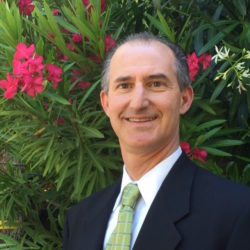Education Pioneers Launch Courses Disrupting the Clinical Research Training Marketplace and Improving Lives
Clinical Research Fastrack is bringing new and exciting boot camp training programs to an industry where they never existed, until now. The founders believe this short course training program taught by industry experts currently working in the field combined with real world internship experience will be far more valuable to students than what traditional universities have offered. They see their program as a way to help meet the industry demand for these roles, speed up the clinical trial process and ultimately improve lives. The clinical research sites are excited, as well. They now have a program turning out a new pool of highly qualified new research coordinators.
Louis Silberman president of CRF says, “We are doing to clinical research training what Uber did to transportation. Transportation existed, Uber just found a way to take it to a whole new level! Well, clinical research training has also existed for years but now those interested in entering this booming field have an amazing unparalleled training opportunity to jumpstart their new career”

Booming Industry
The global market size for research and development exceeds $160 billion according a 2015 industry analyst presentation to JP Morgan. Clinical trials represented over $58 billion of that investment and it is predicted to increase by more than 20% by 2020.
“There are plenty of job opportunities in the clinical research field today and for the foreseeable future,” says Carol McCullough, RN, MBA, director of credentialing, certification and accreditation for the Association of Clinical Research Professionals (ACRP). “The demand continues to grow as the drug pipelines swell.” As biotechnology continues to develop new therapies, those treatments are leaving the the laboratory to be tested and creating a wealth of opportunities in the clinical research profession
Feel Good Career that was unknown is Helping Improve Lives
“Most people have never heard of Clinical Research Coordinators,” says David Silberman, Co-founder of Clinical Research Fastrack, “everyone knows of professions such as nursing, pharmacy techs, medical assistants, or dental hygienist, but coordinators are the best kept career opportunity secret out there! The work pays well, the industry is huge and the coordinators are helping change lives for the better”.
This is truly a “feel good” career. A profession that is running trials on treatments and devices designed to save and improve lives.
The Doorway into a Great Paying Career
Historically individuals would stumble into this career while working at hospitals or healthcare settings. Nurses or other medical support staff would be trained by researchers in the facility. The educational path was vague with some universities offering classes in the subject, but graduates of those programs would have a tough time finding a way into the career. Job listings typically require experience.
Clinical Research Fastrack has now broken down that barrier to entering this field by offering internships in conjunction with one of the country’s largest clinical trial sites. These jobs pay very well at the entry level. The average salary of Clinical Research Coordinator in the United States with two years of experience is $57,000.
Connections, Networking and “Who you know”
What really sets the Clinical Research Fastrack training experience apart is the connections made between the students and industry professionals during the program. It often comes down to “who you know” to get an interview to start a new career. Clinical Research Fastrack’s program provides an amazing networking resource. In addition to learning from ten different industry professionals hailing from reputable institutions like the Mayo Clinic, Banner Health, TGen, Radiant Research and other clinical trial organizations, the students will network with Clinical Research Coordinators, Principle Investigators and other research staff in their internships
Requirements needed to enter the program
Louis Silberman, CEO knows that this career is not for everyone, so he and his team screen every applicant carefully to make sure they are qualified. The interesting thing is that the educational requirements are not as rigorous as one might think. “A passion for healthcare and motivation are the two most important criteria we look for in applicants” says Silberman. “Students don’t need to have a research or healthcare background. Of course we want them to be bright, but the number one criteria we look for is motivation and passion for helping others.” According to Silberman only 40-50% of applicants have been accepted into to the training program While applicants only need two years of college or an LVN license to qualify to apply, Clinical Research Fastrack only wants to enroll candidates with a very high likelihood for success and keep their class size small, each month. The program costs just shy of $10,000 and financing and scholarships are available for those accepted and meet that criteria of “having the drive to do well.”
Great advancement opportunities
The natural evolution for a Clinical Research Coordinator is to then advance into a role as a “monitor” or a Clinical Research Associate (CRA) Clinical Research Organizations currently 10,000 unfilled CRA positions according to a report by ACRP and that number is not likely to subside. CRA’s are the ones who deliver studies to the sites, train the researchers in the study and monitor the progress to make sure the trial is run according to protocol. CNN / Money Magazine rated the CRA position at the 4th best profession in America in their Best Jobs in America edition in 2012. The average salaries were listed at $90,000 per year.
A Labor of Love
Roz Silberman, Louis and David’s mother passed away from Alzheimer’s in 2010. Since that time the two brothers have been looking for ways to give back and support finding a cure to this devastating disease. The Silbemans believe that by educating highly qualified research coordinators they will be filling vital roles and speed up the process of drug trials in the clinic. And in the process of helping this industry, they will be opening the door to an amazing careers for motivated students ready to make a difference in the world.

